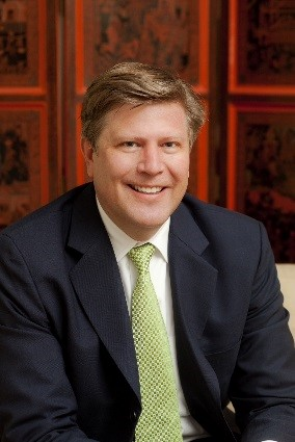Are we in a new Cold War? To be sure, tensions are rapidly rising in Asia, and we are well launched into a new, global naval arms race. The US has agreed to transfer to Australia the most closely guarded technology in the US arsenal, nuclear submarines, and is deepening collaboration with allies and partners from Japan to India. China has launched nuclear-capable hypersonic missiles, is engaged in a huge naval build up, and has flown its flying its largest ever air sorties through Taiwan’s airspace; and the world’s navies are engaged in massive war games in the Western Pacific. All while global trade is entangled in supply chain problems. Will these tensions take us to war in Asia? Or is it still possible to keep the peace? Will climate change be a zone of cooperation; or will changing weather patterns actually intensify competition? Bruce Jones will address these and related questions, drawing on his new book “To Rule the Waves: How control of the world’s oceans shapes the fate of the superpowers”.
Bruce Jones is director and a senior fellow in the Project on International Order and Strategy of the Foreign Policy program at the Brookings Institution; he also works with the Center for East Asia Policy Studies. He is also a non-resident senior fellow at Yale University. Jones previously served as the vice president and director for the Brookings Foreign Policy program for five years.
Jones’ research expertise and policy experience is in international security. His current research focus is on U.S. strategy, international order, and great power relations. His most recent book on the topic is the bestselling “To Rule the Waves: How Control of the World’s Oceans Shapes the Fate of the Superpowers” (Scribner, 2021). Earlier works include “The Marshall Plan and the Shaping of American Strategy,” (Brookings Institution Press, 2017); and “Still Ours to Lead: America, Rising Powers, and the Tension between Rivalry and Restraint” (Brookings Institution Press, 2014). He is also co-author with Carlos Pascual and Stephen Stedman of “Power and Responsibility: Building International Order in an Era of Transnational Threats” (Brookings Institution Press, 2009).
Jones has appeared in The Wall Street Journal; the Washington Post; the New York Times; Foreign Affairs; Foreign Policy; Survival; CNN; BBC World Service; Los Angeles Times; NPR; The Huffington Post; Nikkei Asian Review; Project Syndicate; Noema; “The Tavis Smiley Show”; Al Jazeera English; Reuters; Voice of America; CCTV; and Sky News.
Jones has extensive experience and expertise on peacemaking and crisis management. He served in the United Nations’ operation in Kosovo, and was special assistant to the U.N. special coordinator for the Middle East peace process. He is co-editor with Shepard Forman and Richard Gowan of “Cooperating for Peace and Security” (Cambridge University Press, 2009); and author of “Peacemaking in Rwanda: The Dynamics of Failures” (Lynne Reinner, 2001). He has also served in advisory positions for the U.S. State Department and the World Bank on fragile states, including as senior external advisor to the World Bank’s “2011 World Development Report on Conflict, Security and Development.”
He holds a doctorate from the London School of Economics, and he was the Hamburg fellow in conflict prevention at Stanford University.
















